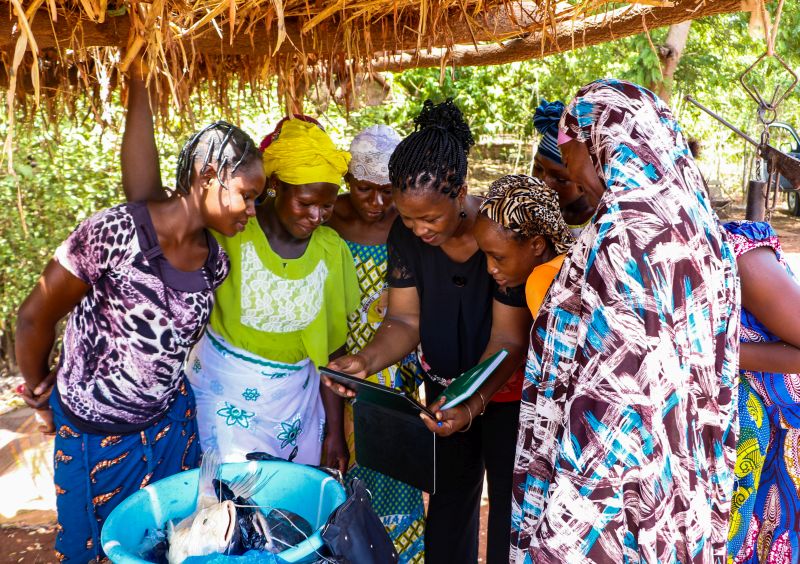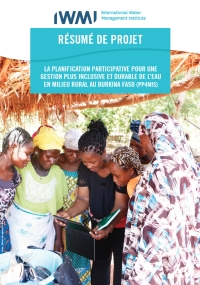
The project is working to strengthen IWRM institutions, foster policy development in relation to sustainable natural resource management (including water resources management) and improve resilience in a climate change challenged regions of Burkina Faso. It aims to empower and increase inclusion of the rural poor in decision-making processes through participatory action research that is driven by demands from local partners and is co-designed with the relevant national and local stakeholders. The project is based on an approach developed by IWMI researchers that puts improved livelihoods of poor people at the center of IWRM, and places IWRM in the broader context of Integrated Natural Resources Management (INRM). Key study sites of the project are located in three watersheds in Burkina Faso that are organized under the local water committees (LWC) created through the countries IWRM plan and supported by the Mouhoun (Black Volta) water agency.
Challenges:
Local water committees and their executive bureau members have limited skills and experience in water resource management. Despite Burkina Faso’s long engagement in IWRM process, the management approach remains a top-down one and most members of the executive bureaus are government officials often removed from the realities that the average water user in the watershed faces. With limited training and resources, the executive bureaus struggle to engage in the IWRM activities beyond the ones imposed on them by the river basin authorities. In addition, most staff at river basin authorities lack training in social sciences and participatory research methodologies.
How Participatory is contributing to the solutions:
Based on an action research approach and using mostly qualitative methods, the project is
- building on existing data on NRM, IWRM, water reforms and participatory decision making in the study area and other parts of Africa and, through scoping field visits, identify a set of watersheds, CLEs and AUEs with different sets of management, governance and participation challenges;
- conducting participatory workshops in these locations to identify the needs and demands of each site and key researchable issues;
- determining layers of institutional-performance linkages by developing an analytical model of institution-performance interaction and collecting qualitative and quantitative socio-cultural, economic and political data to empirically estimate this model using NIE and ethnographic methods;
- developing community guidelines based on (3) to ignite performance-enhancing change in CLEs and AUEs;
- through a participatory action research process, developing, testing in communities outside the initial watersheds, and preparing an uptake plan for the guidelines developed under (4).
- training local researchers, both within and outside the government IWRM institutions in participatory research methods to increase the capacity and ensure sustainability of results.
The project is financed by:
Full project title: Participatory planning for more inclusive and sustainable water management in rural Burkina Faso
Grant: (ADC- IWMI 2015/03)








